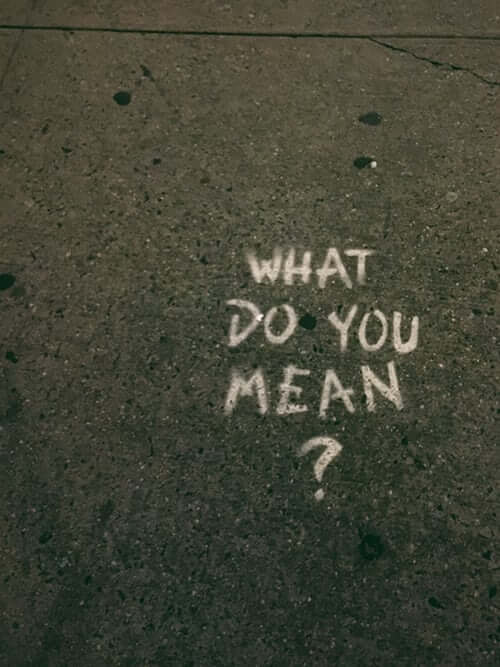This experience begs the question, “Why on earth, with all the different types of breast cancer, treatment protocols, medication and surgical approaches, would a one-size-fits all approach to a healthy breast cancer lifestyle be best?”
Information on breast cancer and nutrition, diet, food, fitness and exercise, bone health, weight loss, sleep, well-being and wellness, recurrence risk reduction, survivorship and living well with mets is EVERYWHERE.
All you have to do track it down?
- A Google search
- Visit the library
- Head to your local bookstore (a reminder to support independent local bookstores!)
- Scroll through reviews on your fav online bookstore
- Ask your oncologist
- Ask your nurse navigator (if you have one)
- Pose the question to your private FB group, your in-person support meeting, your friend who had breast cancer before you did.
The problem with that approach?
- A Google search
- Information overload, unable to determine what’s accurate/safe, conflicting recommendations.
- Visit the library
- Limited selection, books may not be current.
- Head to your local bookstore (a reminder to support independent local bookstores!)
- Limited selection, willing to order books for you, but you want to read/learn NOW. The titles in stock offend you, confuse you, overwhelm you or don’t speak to you (I had this experience when I was first diagnosed.)
- Scroll through reviews on your fav online bookstore, then choose.
- Too. Many. Choices. Don’t some authors pay for reviews? Yes. Yes they do.
- Ask your oncologist
- Not trained in lifestyle medicine, provides general or no information. May or may not offer referral source.
- Ask your nurse navigator (if you have one)
- May be able to connect you to oncology dietitian on staff, but you want answers now, not a week (or more) from now. You still need exercise and disordered eating help (although you don’t even know how, or don’t want to explain that to her/him.)
- Post the question in your private FB group, ask at your in-person support meeting, query your friend who had breast cancer before you.
- The sheer volume of well-intentioned, but erroneous (and sometimes dangerous) information will bury you. And you still won’t know what’s best.
I’ve worked one-on-one with nutrition and fitness clients for close to 20 years. I’ve sat face-to-face with hundreds of individuals, helping them address their specific health concerns around food, diet, exercise, wellness and self-care.
What I’ve learned in working with all of those real, live people are three things:
- There are common themes, but never do two people struggle with the same issue.
- There are a million ways to:
- Use food as a weapon
- Demonize one’s own body
- Be derailed in healthy lifestyle efforts due to self-esteem/confidence issues
- Use food rules and erroneous myths as the basis for feeding oneself
- Justify unhealthy habits
- Feel undeserving of living in a strong, fit, resilient body
- Self-sabotage healthy behaviors
- Let other people sabotage your self-care efforts
- There are clients who simply need education and information on balanced, healthy nutrition and exercise.
This experience begs the question, “Why on earth, with all the different types of breast cancer, treatment protocols, medication and surgical approaches, would a one-size-fits all approach to a healthy breast cancer lifestyle be best?”
It isn’t.
It’s a great starting point. Frankly, when you’re trying to help millions of people, it’s the only way to go. No one organization could possibly share information on every nuance found with every health concern.
And yet, great general guidelines will never be able to answer the many critical questions from patients.
A few, real-life examples of questions/concerns from breast cancer patients and survivors:
- You’ve met with clinic staff to answer your questions, but you want to go deeper.
- There’s not enough time during the clinic session, and you don’t feel comfortable asking “dumb” questions.
- You don’t “click” with the person at your clinic.
- Your oncology dietitian is great, but you also need information on exercise.
- The self-care issues you’ve struggled with for years (feeling undeserving, you’re an emotional eater, low self-esteem gets in the way) are beyond the skill set of the health care providers you meet with.
- You’re a picky eater and general recommendations don’t work for you. The treatment team is unsure how to adapt guidelines so that you stay nourished AND satisfied (there’s a clear difference.)
- Low carb, low fat, keto. Which?
- Soy, sugar, fasting? Confusion.
- Will stretching and exercising the tumor area while still in treatment make cancer spread?
- What exercise workout will help me lose weight I gained in treatment?
- How long does it take to get back in the habit of exercise after treatment, and will I hurt myself if I do?
- How often should I exercise? What should I do when I do exercise?
- I’ve read exercise is one of the biggest factors in preventing recurrence, but I’m not sure where to start.
Working with an experienced practitioner who can tailor recommendations and guidelines to your needs is like finding your true north.
Finding an experienced practitioner who can tailor recommendations and guidelines to your needs is like searching for a needle in a haystack.
When you do find that person?
Here are a few results you can expect from doing deep one-on-one work:
- Feel confident you’re making choices that support your nutrition goals.
- Eat to reduce risk, regardless of whether you’re traveling, dining out or cooking at home.
- Keep your exercise consistent and effective.
- Deal with late-night snacking so you feel more in control.
- Manage your eating when you feel stress and strong emotions, so you don’t confuse “mind hunger” with “tummy hunger”.
- Develop wellness/self-care habits that ground you and keep you sane.
Curious to know what it’s like to work privately with an experienced practitioner who has your best interests and overall health at heart?
Get your FREE nutrition and fitness jumpstart worksheet HERE!



